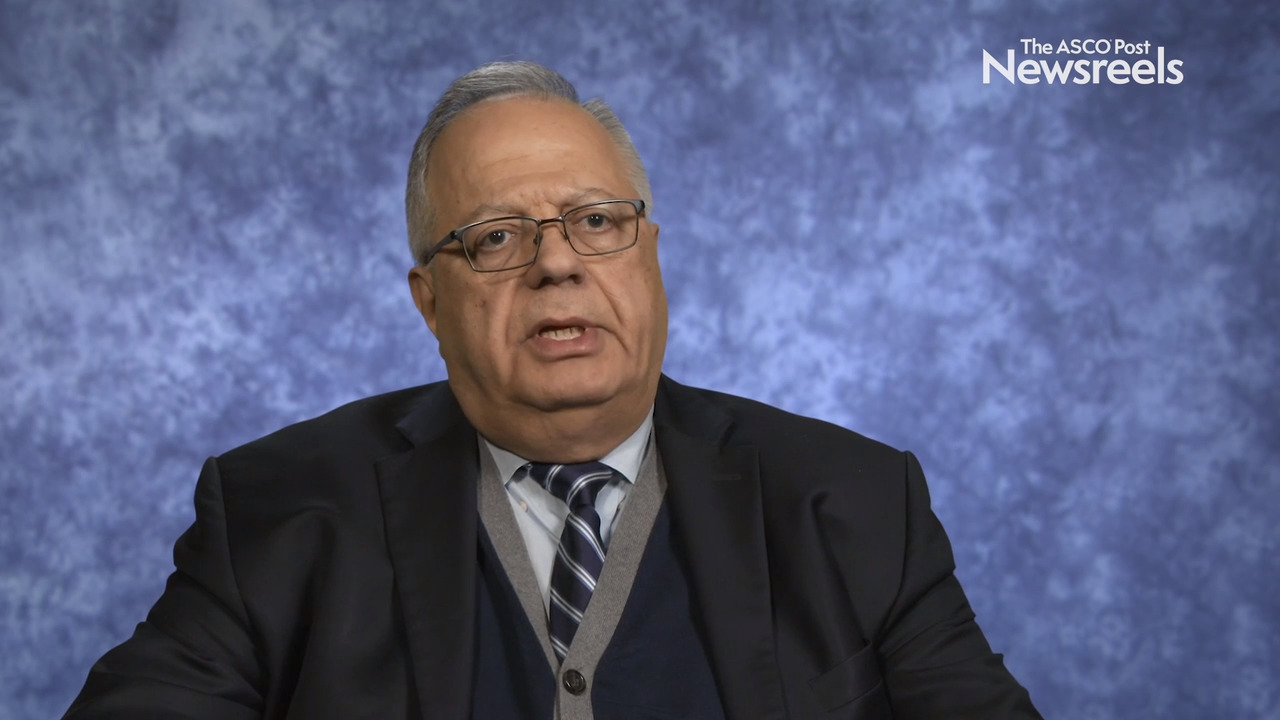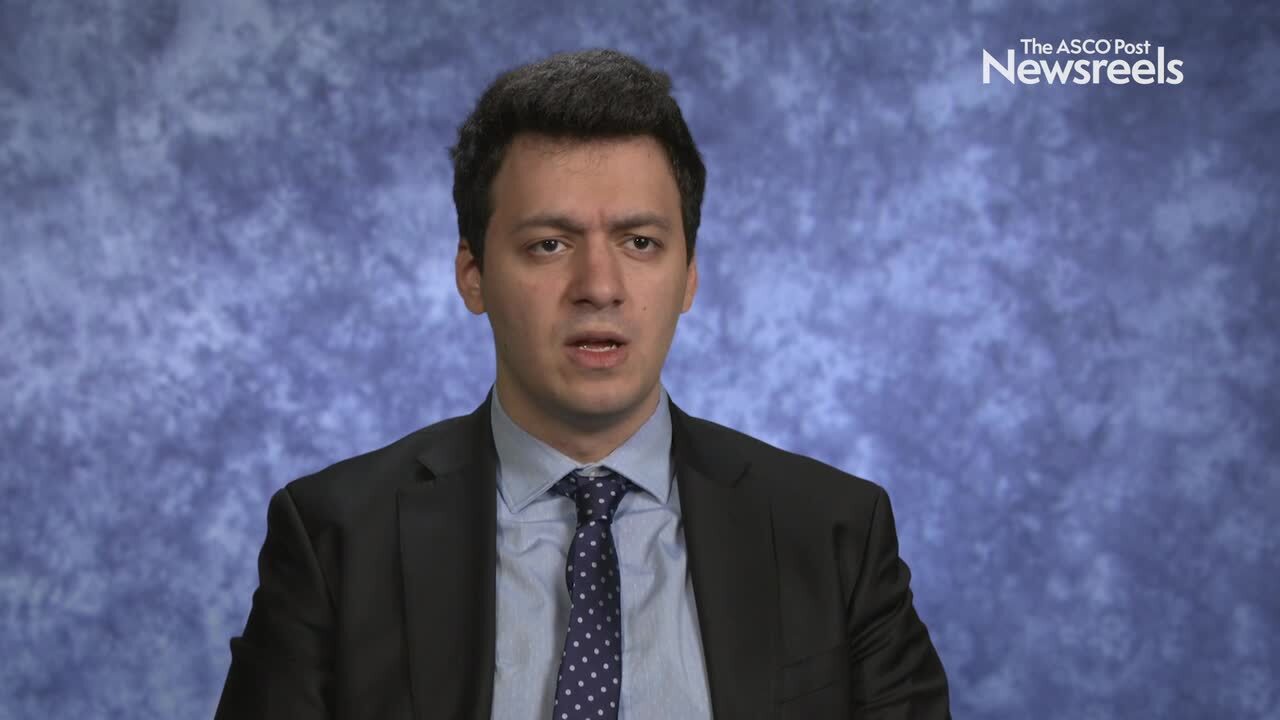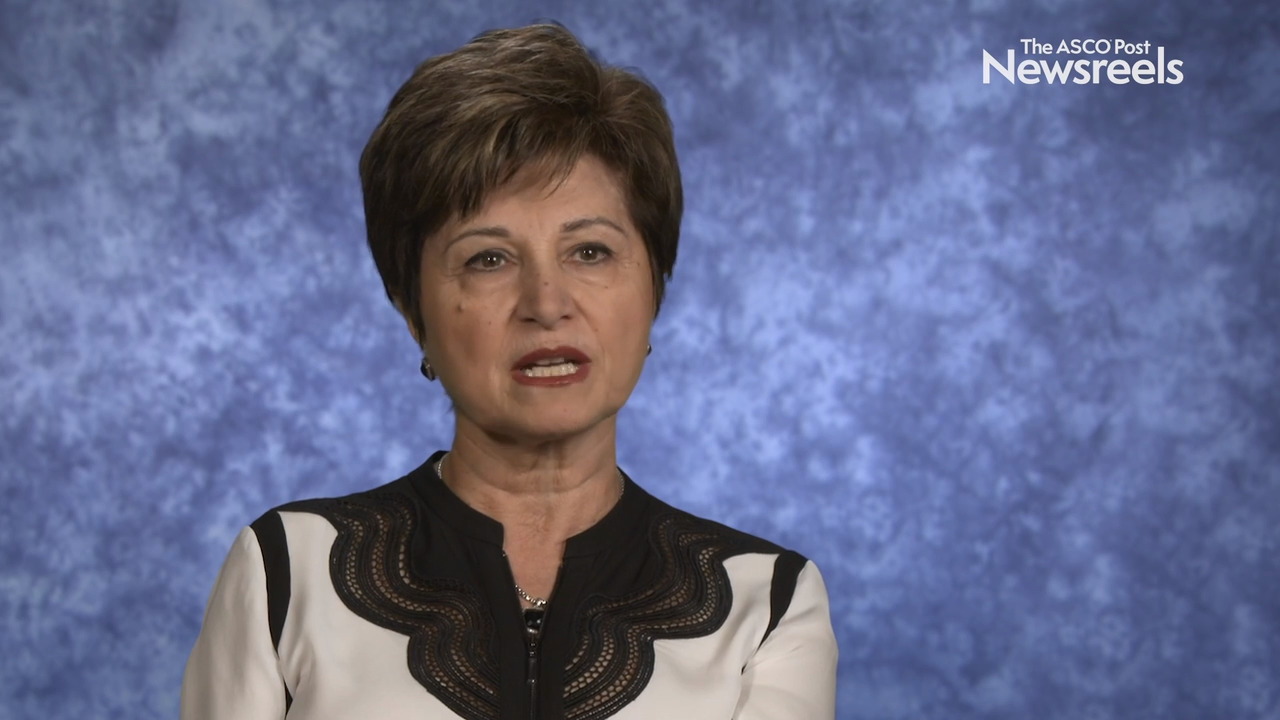Hannah L. Rush, MBChB, on Prostate Cancer: Comparing Quality of Life in Patients Receiving Docetaxel or Abiraterone
2020 Genitourinary Cancers Symposium
Hannah L. Rush, MBChB, of the Clinical Trials Unit at University College London, discusses an analysis of the STAMPEDE trial, which showed that patients treated with abiraterone had higher scores in global quality of life as well as in the physical, social, and role function domains and lower scores for pain and fatigue over the first 2 years than those receiving docetaxel (Abstract 14).
The ASCO Post Staff
Nicholas D. James, PhD, MBBS, of The Institute of Cancer Research in London, discusses results from a phase I/II feasibility study that showed the combination of cetuximab, chemoradiation, fluorouracil, and mitomycin yields high bladder cancer control rates with acceptable toxicity and quality of life, meriting further evaluation in a randomized trial (Abstract 491).
The ASCO Post Staff
Nizar M. Tannir, MD, of The University of Texas MD Anderson Cancer Center, discusses overall survival and an independent review of response in CheckMate 214 with 42-month follow-up, using first-line nivolumab plus ipilimumab vs sunitinib in patients with advanced renal cell carcinoma (Abstract 609).
The ASCO Post Staff
Ziad Bakouny, MD, of Dana-Farber Cancer Institute, discusses two types of renal cell cancer that are associated with poor prognosis. Because recent early data suggest these tumors respond well to immune checkpoint inhibitors, the authors characterized the tumors in an integrative molecular and clinical study (Abstract 715).
The ASCO Post Staff
Syed A. Hussain, MD, of the University of Sheffield, discusses phase II findings comparing nintedanib or placebo in combination with gemcitabine and cisplatin in locally advanced muscle-invasive bladder cancer. The data showed that adding nintedanib was safe and well tolerated, with a significant improvement in progression-free and overall survival at 1 and 2 years (Abstract 438).
The ASCO Post Staff
Maha Hussain, MD, of the Robert H. Lurie Comprehensive Cancer Center of Northwestern University, discusses the first phase III clinical trial to demonstrate the feasibility of tissue-based genomic testing to preselect men with metastatic castration-resistant prostate cancer for targeted treatment and the superiority of the PARP inhibitor olaparib compared to enzalutamide or abiraterone (Abstract 195).





